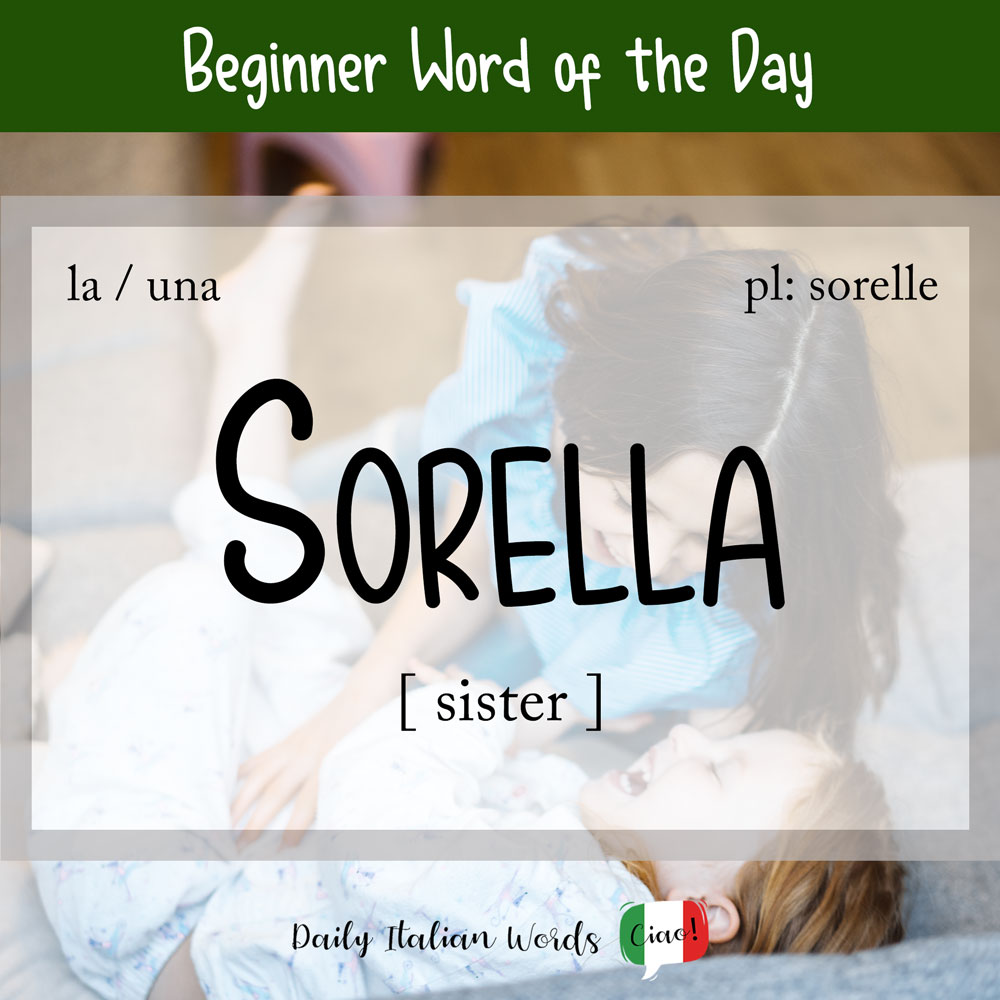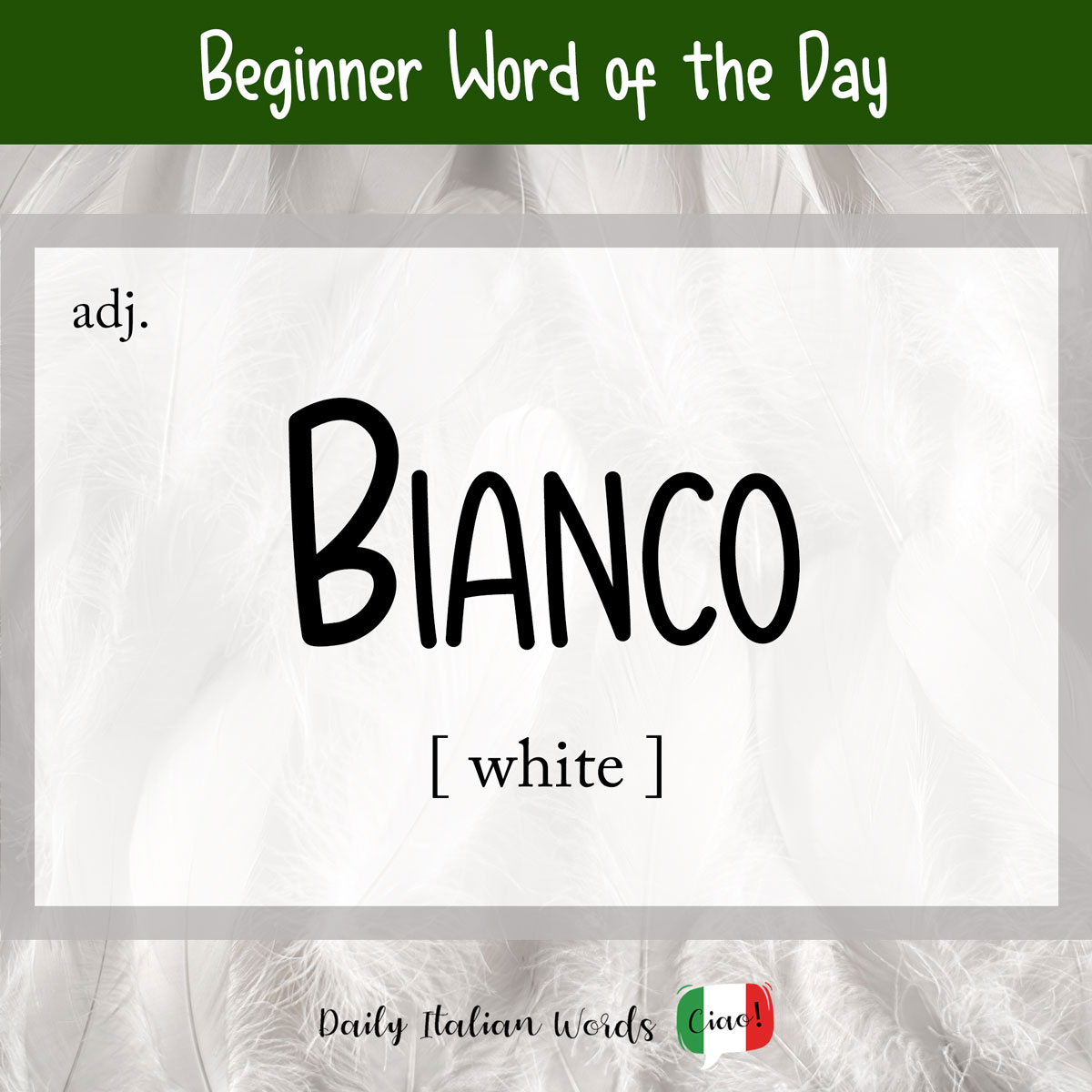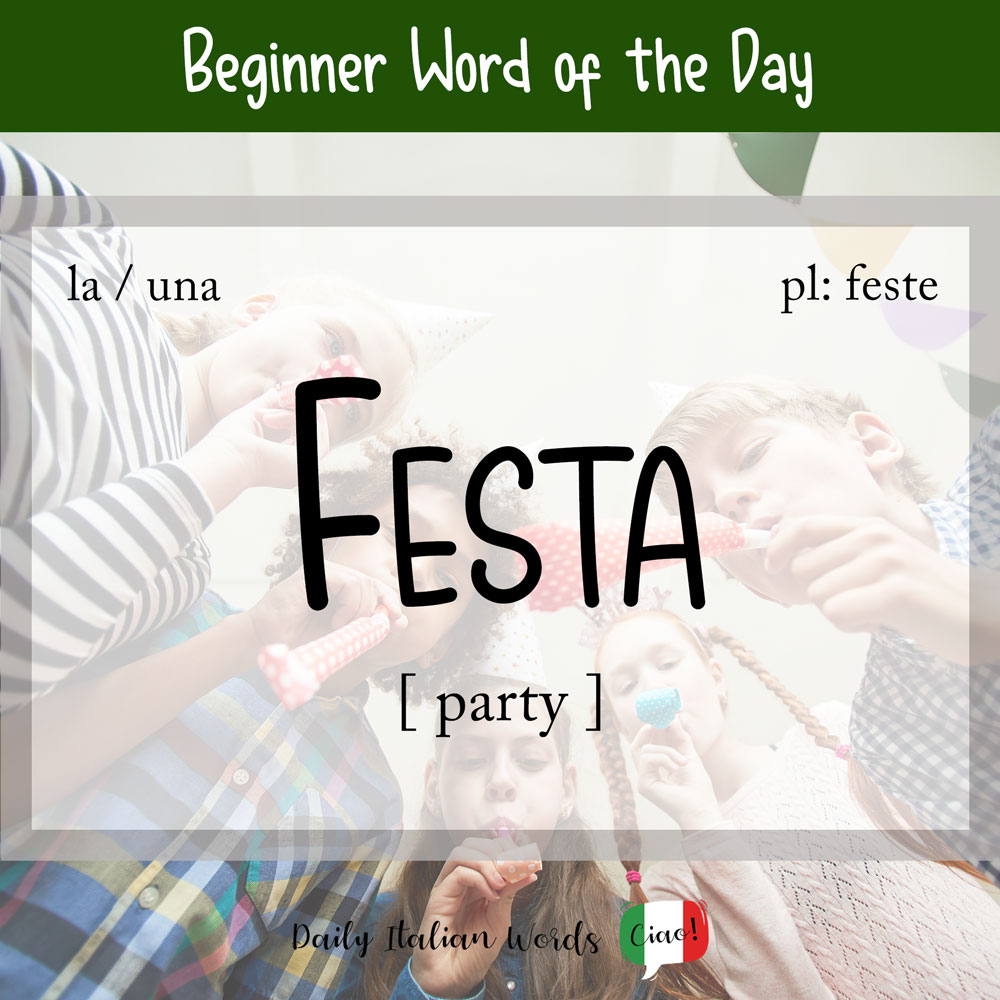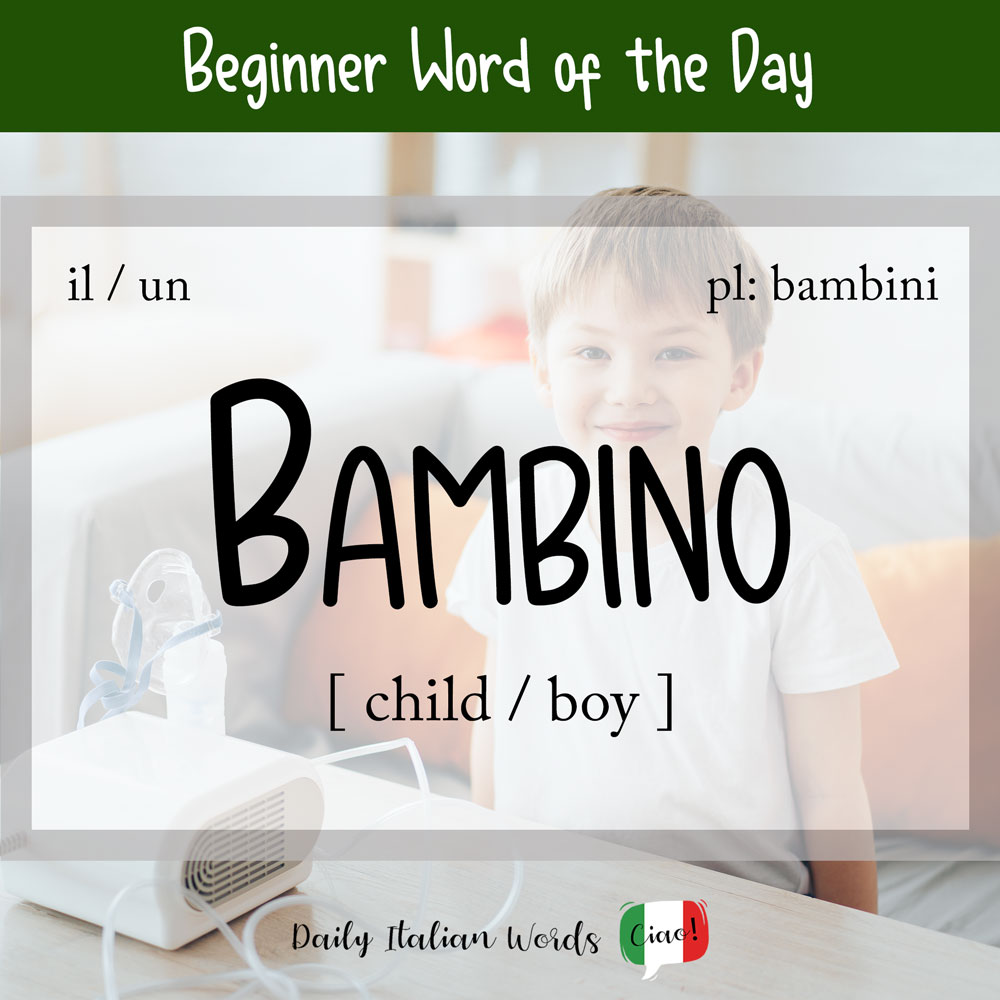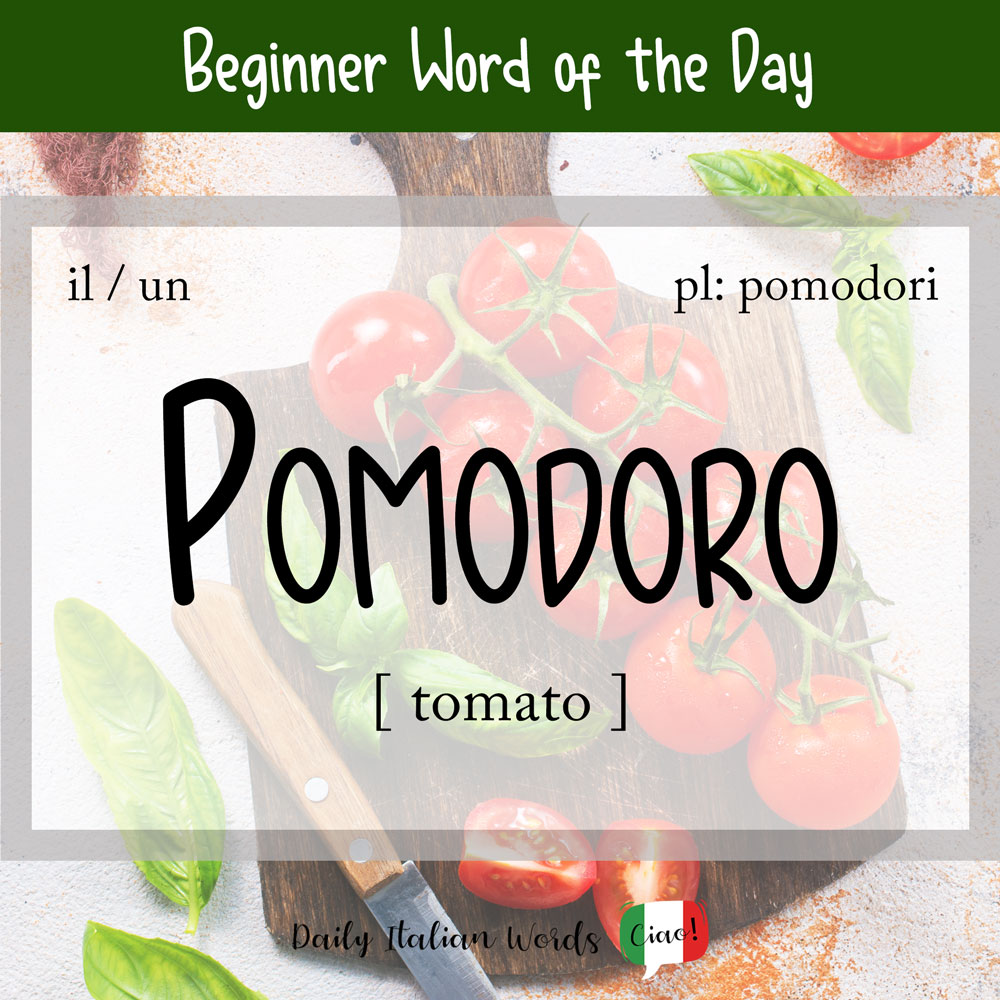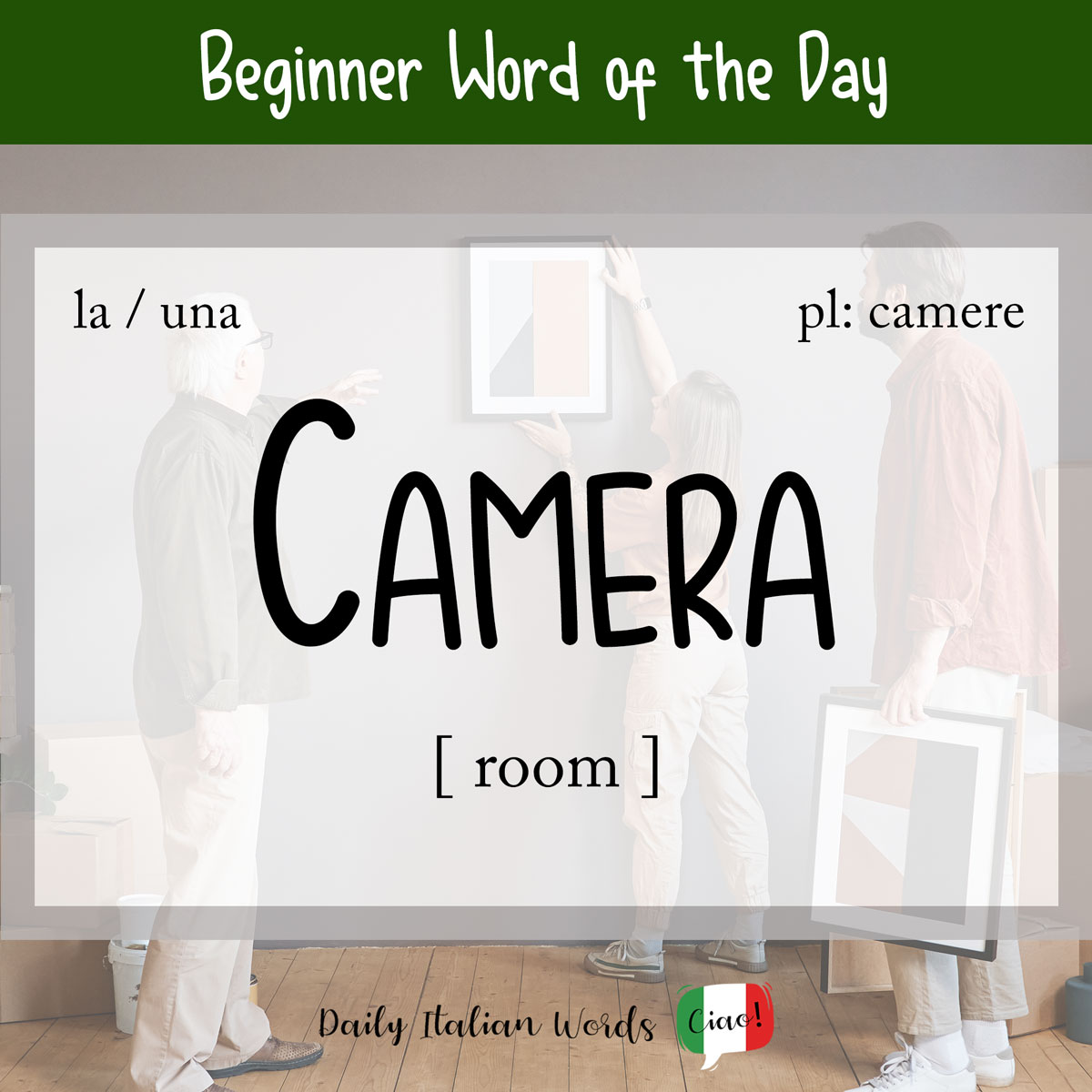Italian Word of the Day: Sorella (sister)
The Italian word for sister is sorella (plural: sorelle). Sorella is a feminine noun and takes the following articles. la sorellauna sorella le sorelledelle sorelle Ho due sorelle – una più grande e una più piccola. I have two sisters – one older and one younger. The official terms for older sister and younger sister …

